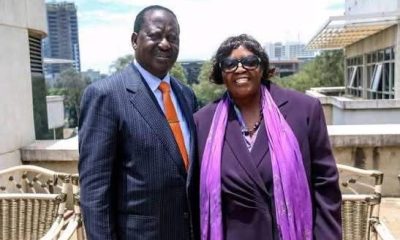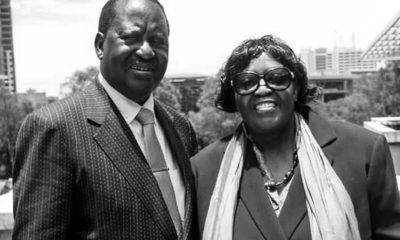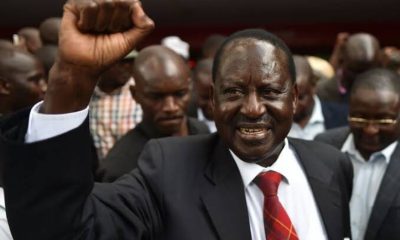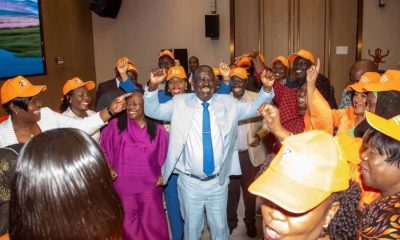Politics
Raila Urges Government and Mungiki Militia to Seek Common Ground
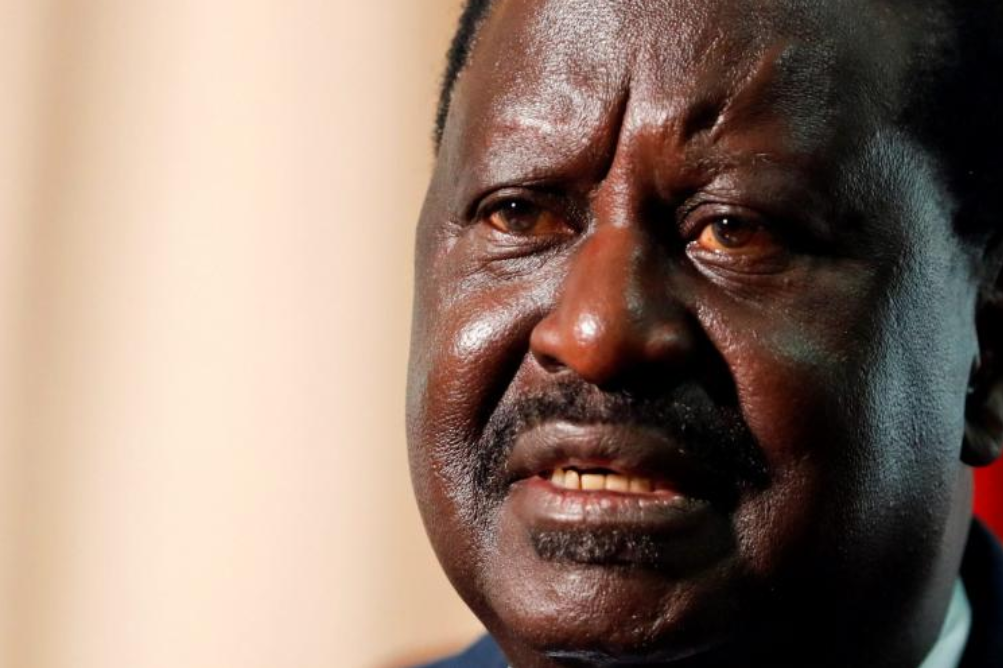
Opposition leader Raila Odinga believes that the government should engage in negotiations with members of the Mungiki sect rather than resorting to violent means.
Raila asserts that the Kenya Kwanza administration is leveling accusations without presenting concrete evidence to support their claims.
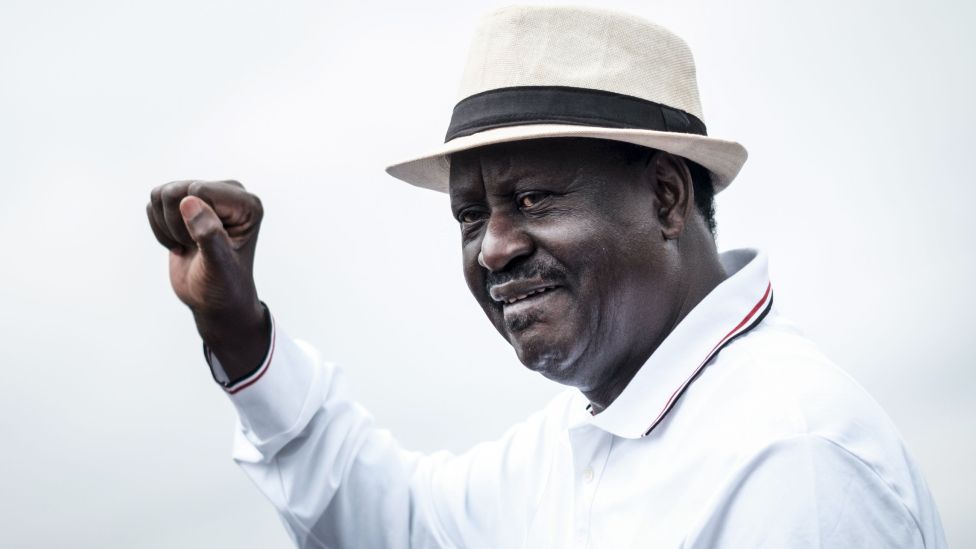
Raila Odinga. Image / BBC News
Kenya has a long history of political tensions and conflicts that have often exacerbated the divide between the government and various opposition groups. One such group is the Mungiki sect, a secretive and controversial movement that has been involved in criminal activities and sporadic violence.
However, in a surprising turn of events, Kenya’s opposition parties are now urging the government to engage in dialogue with the Mungiki militia, seeking a peaceful resolution to long-standing grievances.
This article explores the significance of this unprecedented move and its potential implications for Kenya’s political landscape.
Understanding The Mungiki Sect
The Mungiki sect emerged in the 1980s as a religious and political movement among the Kikuyu people, Kenya’s largest ethnic group.
Initially, the group aimed to promote traditional Kikuyu values, address social and economic inequalities, and challenge political elites.
However, over time, the Mungiki sect transformed into a notorious criminal organization, engaging in activities such as extortion, drug trafficking, and even acts of violence.
Government Crackdown and Raila’s Perspective
Due to their criminal activities, the Mungiki sect has been subjected to a series of government crackdowns.
Security forces have carried out operations to dismantle the group, leading to arrests, prosecutions, and occasional violent confrontations.
Critics argue that the heavy-handed approach by the government has often resulted in human rights abuses and further radicalization of Mungiki members.
In a surprising move, Kenya’s opposition parties, recognizing the need for a peaceful and inclusive society, have called for dialogue between the government and the members of Mungiki sect.
They argue that sustained engagement and understanding of the underlying causes of the Mungiki movement are essential for finding lasting solutions.
Raila Odinga’s standpoint is based on the belief that addressing the root socio-economic issues that drive individuals to join the Mungiki sect is paramount to fostering reconciliation and societal cohesion.
Reasons for Raila’s Engagement
- Addressing Socio-Economic Inequalities: Kenya is grappling with significant socio-economic disparities, including unequal access to resources, land, and opportunities. The opposition argues that by addressing these disparities and ensuring inclusive development, the government can effectively curb the recruitment of disenchanted individuals into the Mungiki militia.
- Promoting Restorative Justice: The opposition’s approach emphasizes the need to shift from punitive measures to restorative justice, focusing on reconciliation, rehabilitation, and reintegration. By adopting this approach, the government can help Mungiki members to renounce violence and contribute positively to society.
- Building Trust and Reconciliation: Meaningful dialogue between the government and the Mungiki sect can help build trust and understanding. By creating platforms for open discussions and listening to the concerns of Mungiki members, the government can potentially deescalate tensions and foster a sense of belonging among marginalized communities.
Challenges and Potential Implications
Engaging with the Mungiki sect poses several challenges and risks. The militia has been involved in serious crimes, and any negotiations must be conducted carefully to ensure accountability and justice for victims.
There is a delicate balance between addressing the root causes of the movement and avoiding the legitimization of criminal behavior.
However, if successful, the engagement between the government and the Mungiki sect could have profound implications.
It could potentially contribute to the rehabilitation and reintegration of former militia members into mainstream society.
Moreover, by addressing the socio-economic grievances of marginalized communities, Kenya may witness a reduction in radicalization and a more inclusive political landscape.
Conclusion
The opposition’s call for the government to engage in dialogue with the Mungiki sect marks a significant shift in Kenya’s political dynamics.
By focusing on the root causes of the Mungiki movement and advocating for restorative justice, the opposition parties aim to bring about reconciliation, trust-building, and lasting peace.
However, it is crucial for any negotiations to prioritize accountability and ensure that justice is served for victims of the Mungiki militia.
Ultimately, the success of this dialogue will depend on the willingness of all stakeholders to engage in genuine and inclusive discussions, keeping the best interests of the nation at the forefront.
Kenya Insights allows guest blogging, if you want to be published on Kenya’s most authoritative and accurate blog, have an expose, news TIPS, story angles, human interest stories, drop us an email on [email protected] or via Telegram
-

 Grapevine1 week ago
Grapevine1 week agoAlleged Male Lover Claims His Life Is in Danger, Leaks Screenshots and Private Videos Linking SportPesa CEO Ronald Karauri
-

 Lifestyle2 weeks ago
Lifestyle2 weeks agoThe General’s Fall: From Barracks To Bankruptcy As Illness Ravages Karangi’s Memory And Empire
-

 Grapevine5 days ago
Grapevine5 days agoRussian Man’s Secret Sex Recordings Ignite Fury as Questions Mount Over Consent and Easy Pick-Ups in Nairobi
-

 Investigations2 weeks ago
Investigations2 weeks agoEpstein Files: Sultan bin Sulayem Bragged on His Closeness to President Uhuru Then His Firm DP World Controversially Won Port Construction in Kenya, Tanzania
-

 Investigations2 days ago
Investigations2 days agoMulti-Million Dollar Fraud: Three Kenyans Face US Extradition in Massive Cybercrime Conspiracy
-

 Investigations2 weeks ago
Investigations2 weeks agoEpstein’s Girlfriend Ghislaine Maxwell Frequently Visited Kenya As Files Reveal Local Secret Links With The Underage Sex Trafficking Ring
-

 News2 weeks ago
News2 weeks agoState Agency Exposes Five Top Names Linked To Poor Building Approvals In Nairobi, Recommends Dismissal After City Hall Probe
-

 Business1 week ago
Business1 week agoM-Gas Pursues Carbon Credit Billions as Koko Networks Wreckage Exposes Market’s Dark Underbelly





